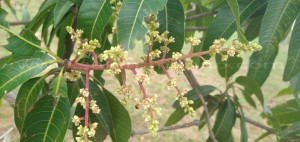3 mins read
Last updated : 13-11-2023
Natural control to Mango hopper
What is mango hopper?
Mango hopper mostly uncontrolled pest in mango farming. Every mango farmer faces big decline in mango yield once they pest enters the mango farms. The pests are dangerous enemy to the mango orchards it destroys flowers and buds and sucks all the trees. The result is disaster for the farmers. With growing production of Mango hopper in the mango farms need to make proper maintance in tree spacing proper sunlight falls in the tree from top to bottom. Proper professional pruning and neem manuring helpds to control Mango hopper.
Natural way to control mango hopper is the most effective and possible ways to escape from the disease. Mango hopper has multiple stages we need to destroy in all modes.
Mango hopper lifecycle
Eggs are stick within the midribs on the lowerside of the tender new leaves. A single female can lay 150 eggs during February to April. Nymphs appear during AugustSeptember and suck the cell sap. Feeding on vegetative formation is noticed during September and October. Nymphs reside inside the gall for five months and become adult within the gall and inactive during cold months. They again appear in the end February-March and only one generation is completed in a year
Now the figures shows why the mango hopper is the Corona to the Mango cultivation which eats everything.
Chemical Spray and Mango Hopper
Use of chemical insecticides and pesticieds will reduce flower pollination and fruit setting capacity. Without pollinators the yield of mango is very much declined when comparing with natuural pollinator honey bees.
The quality of fruit gets much detoriated by mango hoppers after fruit setting they cause honey dew secertions.The black sap covers the entire trees and looks like black oily liquid falling upon the tree.
Chemical spray commonly given for mango hoppers to Farmers are not recommonded for Organic Farming.
How to control mango hopper Natural methods?
These sparys are carefully sparyed which should not directly falls on the flowers and panicle formation and buds should not get affected.
Bio pesticides and manures for Mango hopper
Metarhizium anisopliae can be sprayed at intervals of 3 times a week for contineous 3 weeks which results complete escape from hopper.
Biological Control for hopper and other pests in mango Biological control is regarded as effective, long-term solution to the mealy bug infestation because parasites and predators are self-perpetuating, persists even when the mealy bug is at low population densities, and they continue to attack the mealy bugs, keeping populations below economic injury levels. The coccinellied beetles such as Cheilomenes sexmaculata, Rodolia fumida, Scymnus coccivora, Aulis vestita, Coccinella septempunctata and Nephus regularis are important predators of mealy bug nymphs. Biological control by release of natural enemies has proved very successful. Among the biological control agents introduction of Cryptolaemus montrouzieri (Australian Ladybird), Anagyrus pseudococci, Leptomastix dactylopi, Hypoaspis sp., Verticillium lecanii and Beauveria bassiana are effective in managing the infestation. Hypoaspis is a small mite feeds on crawlers. Soil application of the spores of the fungus, B. bassiana will ensure further reduction of the pest population
